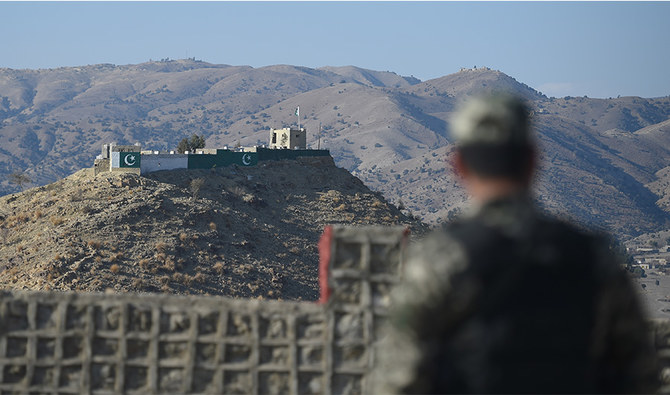ISLAMABAD: A UN report says more than 6,000 Pakistani insurgents, most belonging to the outlawed Tehreek-e-Taliban Pakistan (TTP) group attacking Pakistani military and civilian targets, are hiding in Afghanistan.
The report released this week said the organization has linked up with the Afghan-based Daesh (Islamic State) affiliate and some of its members have even joined the group, which has its headquarters in eastern Afghanistan.
The Afghan government did not respond to The Associated Press requests Sunday for comment.
The report said the Daesh in Afghanistan, known as IS in Khorasan province, has been hit hard by the Afghan Security Forces, as well as US and NATO forces and even on occasion by the Taliban. The report was prepared by the UN analytical and sanctions monitoring team, which tracks terrorist groups around the world.
The report estimated the membership of the Islamic State affiliate in Afghanistan at 2,200 and while its leadership has been depleted it still counts among its leaders a Syrian national Abu Said Mohammad Al-Khorasani.
The report also said the monitoring team had received information that two senior Islamic State commanders, Abu Qutaibah and Abu Hajjar Al-Iraqi, had recently arrived in Afghanistan from the Middle East.
“Although in territorial retreat, (the Islamic State) remains capable of carrying out high-profile attacks in various parts of the country, including Kabul. It also aims to attract Taliban fighters who oppose the agreement with the United States,” said the report referring to a US peace deal signed with the Taliban in February.
That deal that was struck to allow the US to end its 19 year involvement in Afghanistan also calls on the Taliban to guarantee its territory will not be used by terrorist groups. The deal is also expected to guarantee Taliban all-out participation in the fight against the Islamic State.
The second and perhaps the most critical part of that agreement calls for talks between the Taliban and Kabul’s political leadership.
Late on Saturday the US State Department issued a statement saying its peace envoy Zalmay Khalilzad was again shuttling through the region seeking to jump start those negotiations which have been repeatedly postponed as both sides squabble over a prisoner release program.
The US-backed deal calls for the Afghan government to release 5,000 Taliban prisoners and the Taliban to free 1,000 government and military personnel as a so-called good will gesture ahead of talks. Until now the government is refusing to release nearly 600 Taliban prisoners it calls high-profile criminals and have offered to free alternatives. The Taliban has refused.
“The parties are closer than ever to the start of intra-Afghan negotiations, the key next step to ending Afghanistan’s 40-year long war,” said the US State Department statement. “Although significant progress has been made on prisoner exchanges, the issue requires additional effort to fully resolve.”
The Taliban’s political spokesman earlier this week said it was ready to hold talks with Kabul’s political leaders after the Islamic holiday of Eid Al-Adha which is at the end of the month, providing the prisoner release is completed.
A big worry for Pakistan is the presence in Afghanistan of militants, particularly linked to the TTP or Jamaat-al Ahrar or Lashkar-e-Islam, as well as those with the Baloch Liberation Army (BLA), which has taken responsibility for high profile attacks this month in the southern Sindh province as well as in southwestern Balochistan Province. Several Pakistan military personnel have been killed this month in southwestern Baluchistan province in battle with insurgents.
The TTP took responsibility for one of the most horrific attacks in Pakistan in 2014 when a Pakistani army school was attacked and 140 were killed. Most were students and some were as young as five.
“The total number of Pakistani foreign terrorist fighters in Afghanistan, posing a threat to both countries, is estimated at between 6,000 and 6,500, most of them with TTP,” the report said.
















